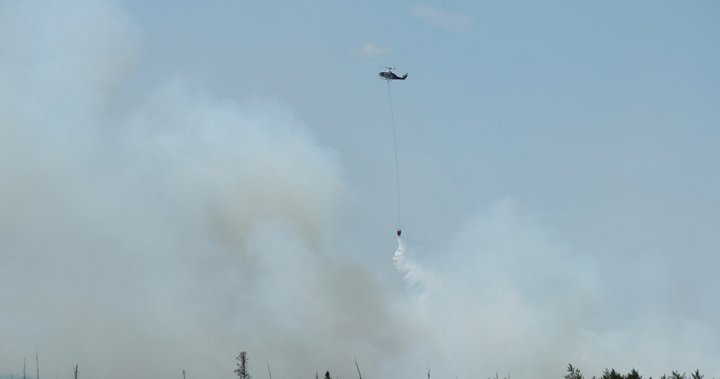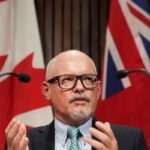In an escalating dispute that has ignited political tensions across the province, Saskatchewan’s government is preparing to take unprecedented legal action against Ottawa over what officials describe as federal interference in provincial wildfire management efforts. This extraordinary confrontation comes as communities continue to grapple with the aftermath of devastating blazes that swept through northern regions earlier this year.
Premier Scott Moe’s administration is currently exploring legal options after alleging that federal authorities blocked provincial firefighting aircraft from accessing critical water bodies within Prince Albert National Park boundaries. According to provincial officials, these restrictions significantly hampered their ability to combat fires threatening nearby communities and infrastructure.
“When seconds count in firefighting operations, being denied access to the closest water sources can mean the difference between containing a blaze and watching it destroy homes and livelihoods,” said Saskatchewan Environment Minister Christine Tell during a press conference yesterday. “Our pilots were forced to divert to more distant water sources, losing precious time while flames advanced.”
The dispute centers on a bureaucratic impasse that developed during May’s emergency response. Provincial water bombers reportedly requested permission to scoop water from lakes within the national park—a federal jurisdiction—but faced what provincial authorities characterize as unnecessary delays and restrictions from Parks Canada officials.
Federal Environment Minister Steven Guilbeault has sharply contested these claims, stating that “no formal request for water bomber access was denied during the emergency period.” The minister emphasized that Parks Canada maintains established protocols for emergency cooperation that were followed throughout the crisis.
This confrontation marks the latest chapter in escalating federal-provincial tensions over environmental and resource management in western Canada. Political analysts at CO24 Politics note that the dispute taps into deeper disagreements about jurisdictional authority and disaster response coordination that have characterized relations between Ottawa and prairie provinces in recent years.
Legal experts consulted by CO24 News suggest the province faces significant hurdles in building a successful case. “Constitutional division of powers gives clear authority to the federal government over national parks,” explained Regina-based constitutional lawyer Melissa Davidson. “The courts typically defer to established protocols unless there’s compelling evidence of bad faith or gross negligence—neither of which appears evident from public information.”
The wildfire season in Saskatchewan has been particularly destructive this year, with over 1.4 million hectares burned—more than double the ten-year average. Northern communities, including several First Nations territories, faced evacuations as flames threatened homes and critical infrastructure. The human toll has been significant, with thousands displaced and mental health impacts expected to linger long after the physical rebuilding concludes.
Community leaders in affected areas have expressed frustration at becoming caught in jurisdictional crossfire. “While governments argue about who controls what water, our people remain in temporary shelters,” said Elder Joseph Merasty from one of the evacuated northern communities. “We need solutions and cooperation, not legal battles.”
Environmental policy experts have pointed to the situation as emblematic of broader challenges in disaster response as climate change intensifies extreme weather events across Canada. The frequency and intensity of wildfires have increased significantly over the past decade, putting strain on existing emergency management frameworks that were designed for less severe and less frequent events.
As legal preparations continue, the provincial government has yet to specify what damages or remedies it might seek through litigation. Opposition critics have questioned whether legal action represents the most constructive approach to resolving coordination issues before next year’s fire season arrives.
What remains to be seen is whether this confrontation will catalyze meaningful reforms to disaster response protocols, or simply deepen the political divisions that increasingly characterize Canadian federalism in an era of climate crisis. Will Saskatchewan’s threatened lawsuit become a turning point for improved emergency coordination, or merely another battle line in Canada’s increasingly fractured approach to environmental governance?
























